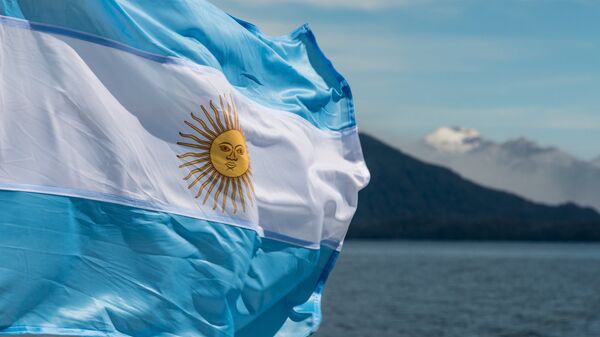Kristian Rouz — The major currency crisis that has badly shaken Argentina over the past several weeks prompted rife criticism of President Mauricio Marci and his government ahead of next year's general election. Elevated political risks have also impaired Argentina's investment appeal, but some foreign companies — especially those in Brazil — are seeking to acquire some Argentine assets for cheap.
The Argentine government announced over the weekend that it would replace the ministers of energy and production due to their inept response to the economic turmoil in the country. This comes just two days after Argentine Central Bank President Federico Sturzenegger resigned, in a sign of acknowledgement of his responsibility for the massive plunge of the national currency — peso — against the US dollar.
READ MORE: IMF Warning of Global Inflation: Money Losing Value?— 'US Will Be Hit First'
"The decision earlier in the year to cut rates, which really catalysed the peso unwind, was forced upon him," Ilya Gofshteyn of Standard Chartered Bank said. "A change was needed at the top as a matter following norms — he was perceived to have failed at his job. But this is no way makes the BCRA's (Banco Central de la República Argentina) job easier."
Meanwhile, the country's President Mauricio Macri, known for his right-of-the-centre, business-friendly policies, is facing an uphill battle heading into next year's electoral season. Last year, Macri's popularity was roughly equal to that of Cristina Fernandez de Kirchner, the former President and prominent centre-left political figure.
The Macri government is now trying to find a way out of the sudden crisis. Buenos Aires has conducted tough negotiations with the International Monetary Fund (IMF), which is considering a $50-billion credit line for the struggling country.
However, Macri's opponents point to the country's bad experience with the IMF back in 2002, when the Fund's neo-liberal agenda exacerbated the devastating consequences of the Argentine financial crisis at the time.
The government announced Argentine Energy Minister Juan José Aranguren would be replaced by Javier Iguacel, who previously in charge in the nation's road infrastructure.
The government also said Production Minister Francisco Cabrera would be replaced with economist and former Secretary of Industry, Commerce, and Mining Dante Sica. However, Cabrera will continue working with the Macri administration as President of the Bank of Investment and International Trade (BIIT), as well as personal advisor to President Macri.
The Argentine government is seeking to create the optimal conditions for the IMF to make a positive decision on its lifeline to the ravaged country. The newest Argentine crisis started when the US Federal Reserve tightened its borrowing costs, making it dearer for overseas borrowers to refinance their obligations.
"There are internal reasons, the fiscal and trade imbalances, and there is an international context, with an appreciating dollar across the world," former Central Bank President Aldo Pignanelli said.
Meanwhile, during Marci's presidency, which started back in 2015, Argentine businesses and, to a lesser extent, public sector enterprises, have accumulated a significant debt in US dollars. Now the government is trying to belatedly fix this miscalculation, but a political upheaval might disrupt the Macri administration's attempts to make it right.
READ MORE: IMF Extends $50Bln Lifeline to Argentina
"The IMF agreement sets ambitious targets that will be difficult to implement, including a 1.3-percent primary fiscal deficit target for 2019, an election year," Daniel Kerner of Eurasia Group said.
The more President Macri is trying to appeal to the IMF now, the louder the voices of his opponents become, pointing to the country's bad experience with the Fund, and the massive economic success of the late 2000s under the Fernandez de Kirchner administration.
This comes after some investors sold their stock in Banco Patagonia, rendering the Argentine bank's shares cheaper, and making Banco do Brasil more eager to take advantage of the situation.
According to Banco do Brasil's filing with an Argentine securities watchdog, its stake in Banco Patagonia would increase to 80.38 percent from 58.97 percent at this point, while the Brazilian bank's capitalisation would reduce by only 0.12 percent.
This would mean ever-increased foreign influence in the Argentine financial system, while the Banco do Brasil-Patagonia deal is expected to draw the attention of Macri's political opponents at home — ahead of the election season, which is already expected to be highly competitive.




